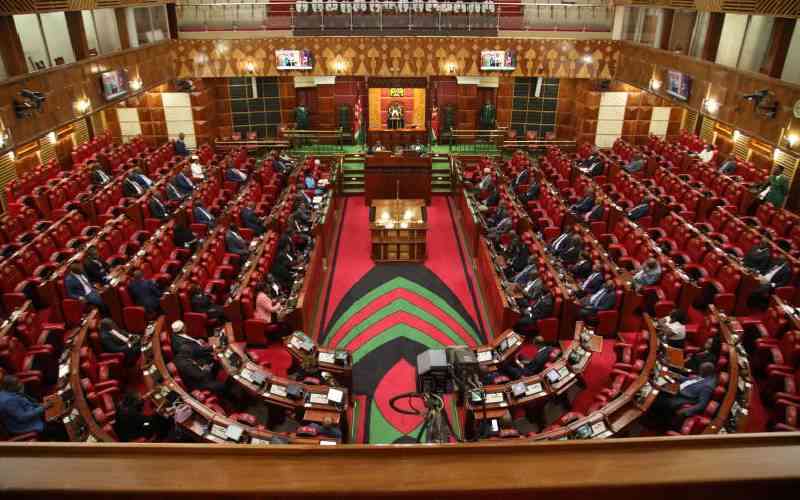In Kenya’s political arena, women are rarely seen as leaders in their own right. Instead, they are often labelled with degrading terms like flower girls or slay queens, or portrayed as sidekicks to powerful men. These sexist narratives undermine their legitimacy and overshadow their ideas and capabilities.
This problem is not unique to Kenya. When a US governor dismissed Vice President Kamala Harris because she lacked “humility” as a stepmother, it reflected a global pattern that reduces women’s value to their biological or marital roles.
In 2010, Kenya took a bold constitutional step by enshrining the two-thirds gender principle, which requires that no more than two-thirds of any elected or appointed body be of the same gender. On August 27th, we celebrated the 15th anniversary of this Constitution. Yet despite this milestone, the promise of gender equity remains unfulfilled. This failure is not due to legal complications but a deliberate refusal to share power with women. Today, women hold only 23.3 per cent of National Assembly seats, 31.3 per cent in the Senate, and just six out of 47 governor positions. This is despite women making up over half of Kenya’s population. Women remain political outsiders in a system they helped build. Their exclusion is a loss for democracy and denies women their rightful place in shaping Kenya’s future.
Feminist institutionalism explains how male-dominated systems resist reform, preserving existing hierarchies and exclusionary practices. Critical mass theory suggests change occurs only when women reach a threshold, often one-third, allowing them to move from symbolic presence to real influence. Kenya has not yet reached this level, making it hard for women legislators to push through meaningful laws, including those enforcing gender equity.
Follow The Standard
channel
on WhatsApp
While the Judiciary has shown courage in defending the Constitution, Parliament has not. In 2020, Chief Justice David Maraga advised President Uhuru Kenyatta to dissolve Parliament for failing to enact the gender rule. The obstacle is not legal ambiguity but a lack of political will. If Kenya is to fulfill its constitutional promise, male leaders must step up not as gatekeepers but as genuine allies in gender justice. Their commitment is vital to dismantling barriers and creating a more inclusive environment.
Real male allyship starts in Parliament. Male MPs must go beyond symbolic support to actively co-sponsor and vote for gender equality laws. Past failures, from Phoebe Asiyo’s 1997 motion to recent constitutional amendment bills, lacked sufficient male backing. Success stories from other countries show what is possible when men lead with conviction. In Rwanda, post-genocide reforms included men actively championing women’s inclusion. In Nordic countries, male-led parties voluntarily adopted quotas that transformed politics. Kenya’s male leaders must show similar resolve.
Supporting women’s political participation goes beyond fairness. Countries with higher female representation tend to have stronger democracies and lower corruption. Women leaders often prioritise social policies like education, healthcare, and child welfare, which uplift communities and reduce inequality. Economically, increasing women’s participation boosts GDP, productivity, and sustainable development.
The two-thirds gender principle is not just about representation. It is about building a just, forward-looking democracy that reflects Kenya’s full diversity. It tests whether Kenya will uphold its Constitution and share leadership fairly.
Kenyan women are ready to lead. They have shown resilience, competence, and courage despite systemic exclusion. The question is not their readiness but whether men who hold power are willing to share it and embrace inclusive leadership.
–The writer comments on topical issues
Follow The Standard
channel
on WhatsApp
By Wanja Maina


